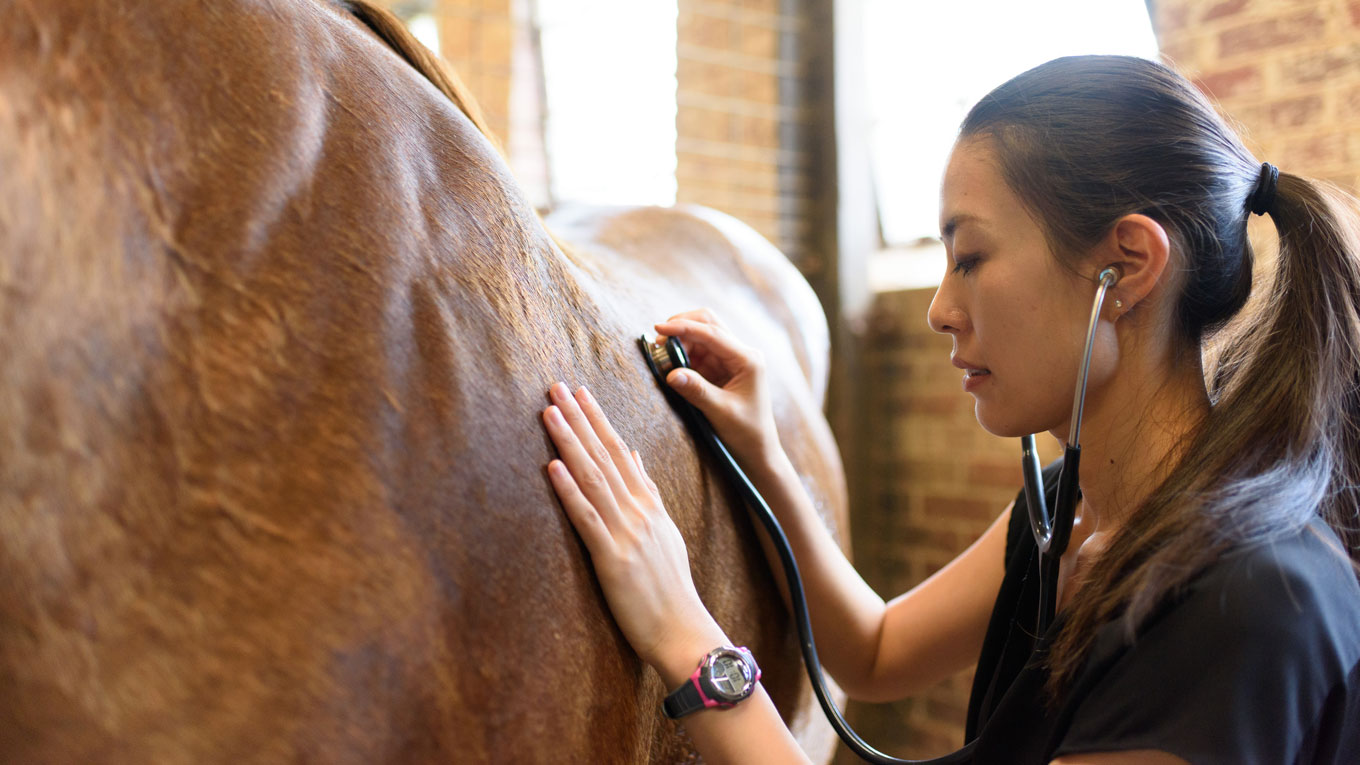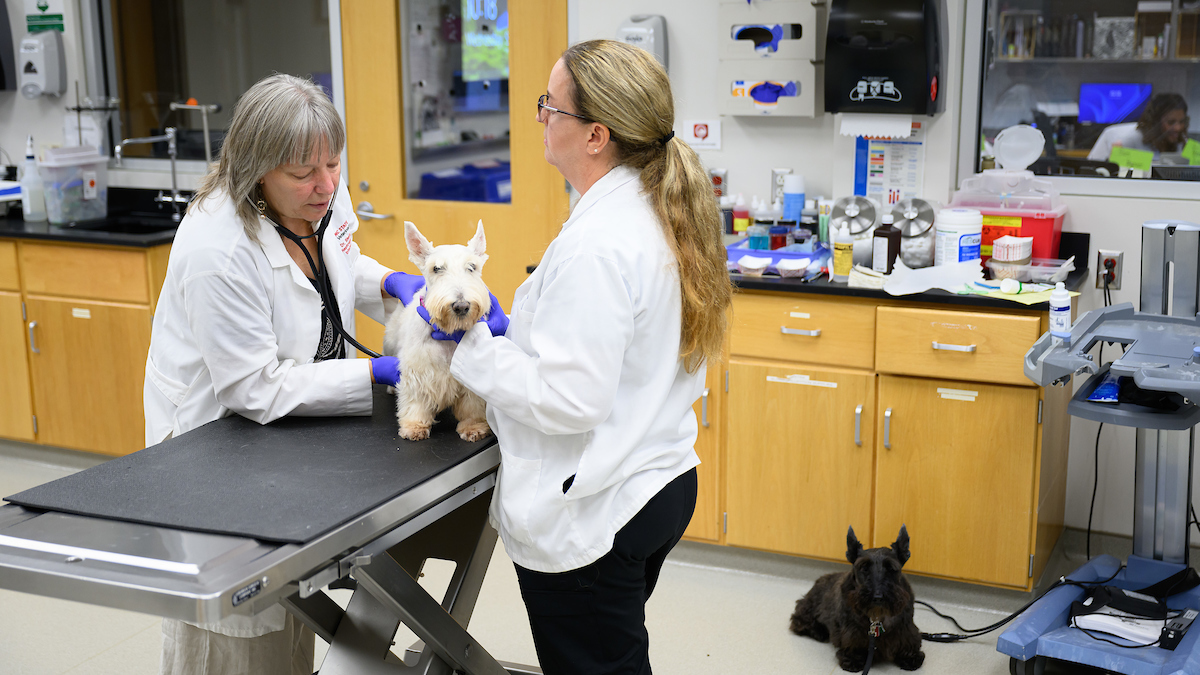Specialty Spotlight: Colic

NC State’s equine program provides expert care for colic at the country’s preeminent center for excellence in treatment.
Our colic specialists, widely recognized experts in equine surgery and gastroenterology, work closely with clients to offer the most personalized care for each and every horse with colic.
From highly successful surgical and non-surgical treatment approaches, to research at the forefront of solution-driven biomedical research and clinical practices for treating colic, we are committed to treating colic in the most effective way.
Extraordinary Care
- NC State is the world leader in chronic and recurrent clinical colic care and research, bolstered by the latest diagnostic procedures, including ultrasound and endoscopy, as well as high-resolution radiography and MRI techniques.
- Our equine emergency service, open year-round, 24 hours a day, offers immediate care for colic.
- Our team of internationally renowned gastroenterology researchers are leading the charge to enhance critical care treatment for colic.
- Anthony Blikslager, professor of equine surgery & gastroenterology, is a world-leading expert in equine colic treatment, specializing in research aiming to control such conditions as inflammatory bowels, gastric ulcers and esophagitis.
Innovative Research
- The NC State equine service was the first to show that constant infusion of pain medication after colic surgery leads to early recovery and early discharge.
- We were the first to show that “belly jelly,” a treatment technique to lessen post-surgical inflammation, saves horses lives by as much as 15 percent.
- We were the first to show that that Banamine, the original gold standard of non-steroidal anti-inflammatory drugs, did not work as well as COX-2 inhibitors.
- Liara Gonzalez, assistant professor of gastroenterology and equine surgery, is a leader in the field of intestinal stem cell research. Her team has successfully recreated the innermost layer of a horse’s intestine using stem cells, a leap forward in preventing intestinal disease.
Passionate People
- Categories:


